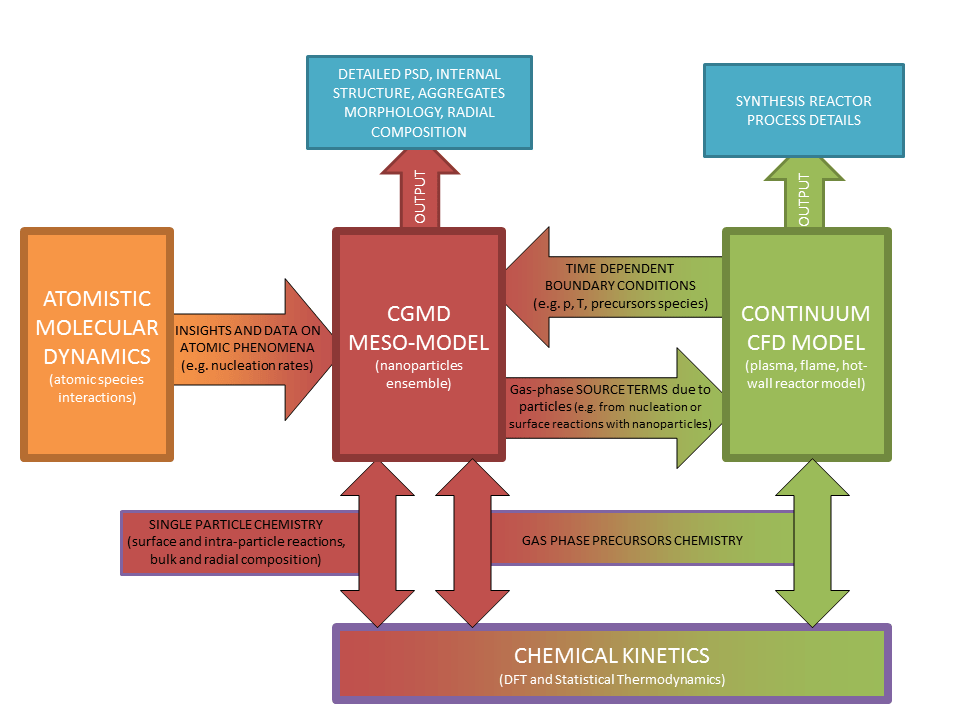The accurate control of nanoparticle properties remains a big challenge in gas-phase synthesis processes such as plasma processes, flame synthesis and hot-wall reactors. The production of complex nanostructures is often very time-consuming due to the complexity of thermodynamics, kinetics and control of properties of these processes. The mechanisms of nanoparticles formation, growth and functionalization also span over different scales.

The development of a self-consistent and validated first-of-a-kind modelling toolkit, which is generic enough to be applicable to a wide variety of nanomaterial synthesis processes and which links atomistic and continuum models for an efficient process design of novel nanomaterials forms the main challenge of the NanoDome project.

CMCL Innovations is contributing to multiple aspects of the NanoDome project by leading the chemical kinetics mechanism development, providing its expertise in the numerical modelling of gas phase chemical kinetics and formation of nanoparticles. CMCL has extended its award-winning software toolkits, kineticsTM and MoDSTM and applied them for process model validation and for industrial process optimisation. CMCL’s experience in model validation and optimisation in the context of practical industrial process data is of direct benefit to the NanoDome project. As a software developer and technical services provider and given our background in enterprise management, CMCL is also going to work towards the development of a sustainable business plan to enable successful exploitation of the NanoDome project. As the software company, CMCL is going to ensure that the NanoDome toolkit is designed for typical industrial end-users in terms of complexity, usability, computational cost and user friendly interface.
The NanoDome project was funded by the European Commission under the Horizon 2020 programme. The consortium comprises of the University of Bologna (Italy), the CNR (Centro Nazionale delle Ricerche – Italy), the University of Duisburg-Essen (Germany), the University of Cambridge (UK), Umicore (Belgium) and CMCL Innovations.
